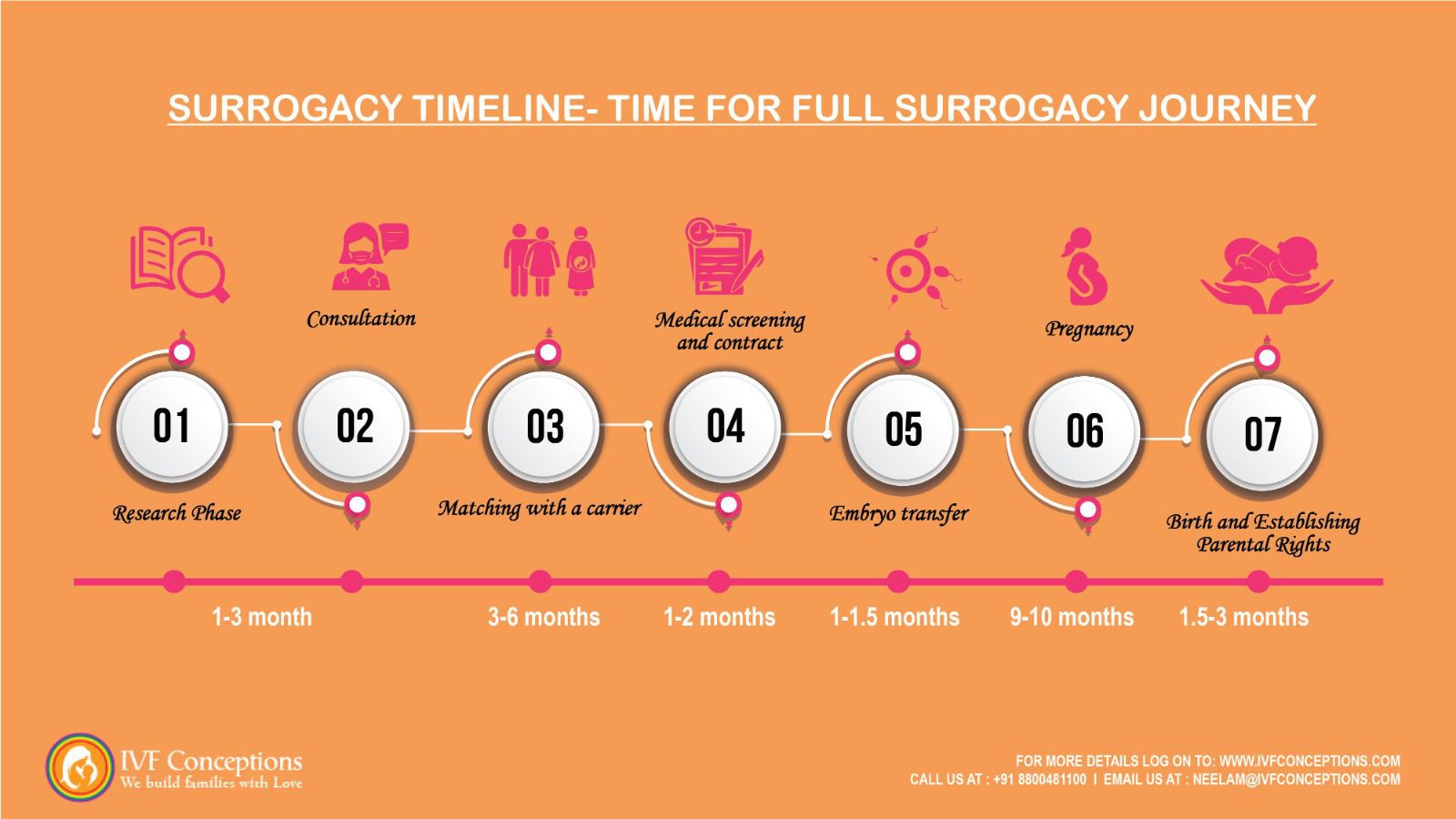Who Can Opt for Surrogacy in India- Your Guide to Legal Surrogacy

India’s strict surrogacy rules have changed a lot. Now, only altruistic surrogacy is allowed. This change aims to protect surrogate mothers and intended parents. Knowing the guidelines for surrogacy in India is key for those exploring this option. Let’s discuss Who Can Opt for Surrogacy in India and how the surrogacy process works in India.
India’s surrogacy laws have become highly restrictive, permitting only altruistic surrogacy for specific groups of Indian citizens under the Surrogacy (Regulation) Act, 2021. This guide outlines who qualifies for surrogacy, legal requirements, and potential alternatives for those who are ineligible.
Key Takeaways
- India was a global surrogacy hub until 2015, garnering up to $2.5 billion annually from the surrogacy market.
- The Surrogacy (Regulation) Act of 2021 criminalizes commercial surrogacy and allows only altruistic practices.
- Eligibility criteria for intended parents include specific age ranges for both partners, ensuring responsible and well-prepared parenthood.
- Surrogate mothers must be between 25 and 35 years old, physically and mentally fit, with at least one of their own children.
- Violating surrogacy laws can result in severe penalties, including up to 10 years of imprisonment and hefty fines.
- Single women, regardless of marital status, are eligible for surrogacy under specific age and condition criteria.
Who is Eligible for Surrogacy in India?
| Criteria | Eligibility |
|---|---|
| Marital Status | Only Indian married couples (2+ years of marriage) |
| Age Requirement | Female: 23-50 years, Male: 26-55 years |
| Medical Condition | Certificate proving medical infertility is mandatory |
| Surrogate Requirements | Must be a close relative, aged 25-35 years, with at least one biological child |
| Single Women Eligibility | Only widowed or divorced women (35-45 years old) |
| Foreigners, LGBTQ+, Live-in Partners | ❌ Not eligible under Indian law |
🔹 Overseas Citizenship of India (OCI) and Non-Resident Indians (NRI) also face restrictions.
Get in touch for a Free Surrogacy Consultancy:
📲 +91-8800481100 ( WhatsApp, Line, Viber)
THE SURROGACY (REGULATION) ACT, 2021
A lot of regulations were introduced, impacting many aspects of surrogacy. A glimpse of a few of the regulations is marked here below. If you wish to do surrogacy in India, you need to fulfill these. We are happy to assist you with the legal surrogacy program in India, but if you do not pass this condition, then doing surrogacy outside India is possible with us.
Key Takeaways
✔️ Only married Indian couples and select single women can pursue surrogacy.
✔️ Foreigners, LGBTQ+ individuals, and live-in partners are not eligible.
✔️ Strict medical and legal approvals are required.
✔️ The surrogate mother must be a close relative and can only act as a surrogate once.
✔️ Alternatives exist for those who do not qualify under Indian law.

Important clauses redefining surrogacy are highlighted below.
- Has to be Gestational Surrogacy (the surrogate mother is not genetically linked to the child).
- Altruistic Surrogacy (no direct financial benefit to the surrogate mother)
- Registered Surrogacy Clinic only (ART Registered clinics can perform surrogacy).
- Single woman (divorced or widowed), between the age of 35 to 45 years. The genetic link is a must.
- Married Indian female (25 to 50 years) and male (26 to 55 years).
- Couple of Indian origin.
- Couple have not had any healthy surviving child biologically or by adoption.
- Insurance for 36 months, for the Surrogate mother for illness or death.
- Have to have Medical indication necessitating gestation surrogacy.
- No sex selection.
- To obtain certificate of essentiality from The Appropriate Authority.
- To obtain certificate of medical indication necessitating gestation surrogacy from the District Medical Board.
- Parentage Order passed by First class Magistrate.
- Surrogate Mother to obtain eligibility certificate from The Appropriate Authority.
- Surrogate mother should be between 25 to 35 years.
- Surrogate mother will act as a Surrogate only once in her lifetime.
- Medical and psychological fitness for Surrogate mother.
Surrogacy (Regulation) Amendment Rules, 2024- As of 21st Feb 2024, it is possible to use an egg donor or sperm donor if all other conditions are met.
Additional guide for surrogacy in India:
Cost of Surrogacy in Mumbai: Affordable Options
Top 5 Best Surrogacy Doctors in Mumbai With High Success Rate (2023)
Best IVF Centers in India – IVF Conceptions
Is Surrogacy in India For Overseas Citizenship of India (OCI) Allowed
Latest Surrogacy Law in India- Surrogacy (Regulation) Act, 2021
Is Surrogacy for NRI in India Allowed?
How to Find Surrogate Mothers in India
How Much Does Surrogacy Cost In India ( in 2023)?
Legal Issues Related To Surrogacy In India
Surrogacy In India-Everything Parents Need to Know
Top 10 Surrogacy Doctors in India With Affordable Surrogacy Costs
 Eligibility Criteria for Surrogacy in India
Eligibility Criteria for Surrogacy in India
Surrogacy in India follows strict rules to keep the process ethical and safe for everyone. Only Indian citizens can participate in surrogacy along with OCI cardholders, or NRIs. No foreigners are allowed to do surrogacy in India.
Married Couples
Married couples must have been together for at least five years to pursue surrogacy in India. The woman should be between 23 and 50, and the man between 26 and 55. They need to show proof of infertility from a district medical board.
They cannot have children from previous relationships unless there are special cases.
 Single Women
Single Women
Single women can choose surrogacy in India if they are 35 to 45 years old. They can be married, divorced, or widowed. But they must not have any children from before.
Medical Conditions
Medical reasons are key in deciding who can have surrogacy. It’s for those with issues like MRKH syndrome, abnormal uteri, or repeated failed pregnancies. This makes sure only those with real reproductive problems use surrogacy.
The surrogate mother must be a relative of the intended parents, 25 to 35 years old, and have at least one child of her own.
| Eligibility Criteria | Details |
| Marital Status | Legally married for at least five years |
| Age Criteria | Women: 23-50 years; Men: 26-55 years |
| Infertility Proof | Certified by a district medical board |
| Surrogate Mother | Close relative, aged 25-35, having one biological child |
| Medical Conditions | MRKH syndrome, uterus abnormalities, and recurring reproductive failures |
| Prohibited Groups | Homosexuals, single parents, live-in couples, international intended parents |
India also has altruistic surrogacy, where the surrogate mother gets only medical expenses. This keeps the process ethical and not for-profit.
Legal Requirements for Surrogacy in India
The Surrogacy Regulation Act of 2021 sets strict rules for surrogacy in India. Only altruistic surrogacy is allowed, meaning surrogate mothers can only get paid for medical costs. Commercial surrogacy is banned to prevent exploitation and ethical issues.
Intended parents must meet certain legal requirements for surrogacy in India. These include:
- Proof of lawful marriage for at least five years.
- A doctor’s certificate confirming infertility.
Also, the legal aspects of surrogacy in India require two certificates. These are a certificate of essentiality and a certificate of eligibility. These ensure the intended parents meet all legal requirements.
Surrogate mothers must be relatives of the intended parents, married, and have at least one biological child. The laws also limit surrogacy attempts to three. Surrogates can only provide their services once, showing a strict approach.
The laws aim to protect everyone involved in surrogacy. Clinics must meet certain criteria, like having an embryologist, anesthetist, gynecologist, and counselor. Intended parents must also provide health insurance for the surrogate mother for 36 months.
Legal Documentation Required for altruistic surrogacy in India
| Document | Purpose |
| Certificate of Essentiality | Confirms infertility & necessity for surrogacy |
| Surrogacy Agreement | Legally binding contract between parents & surrogate |
| Medical Board Approval | Required from the District Medical Board |
| Surrogate Mother’s Eligibility Certificate | Confirms she meets legal requirements |
| Court Parental Order | Grants legal parental rights to intended parents |
🔹 Strict penalties apply for violating surrogacy laws, including fines and imprisonment.
Who Can Opt for Surrogacy in India: Guidelines
Surrogacy in India follows strict rules to protect everyone involved. The rules focus on the couple’s marriage, age, and health. They also look at the surrogate’s well-being.
Lawful Marriage
Married couples wanting surrogacy in India must meet some requirements. They need to have been married for at least a year. This shows they are committed and stable.
It’s important for the couple to show they meet the legal requirements for surrogacy. This follows India’s laws on surrogacy.
Age Criteria
The age rules for surrogacy are set to keep everyone safe and healthy. Women hoping to be mothers through surrogacy should be between 23 to 50 years old. Men should be between 26 to 55 years.
These age limits are decided by the authorities. They make sure the parents are ready and suitable.
Being eligible for surrogacy isn’t just about age and marriage. Couples can only try surrogacy three times. Surrogates can only do it once in their life.
These rules, along with following ethical surrogacy practices, make the journey safe. It’s safe for both the surrogate and the intended parents.

Surrogacy Process in India
The surrogacy process in India is now well-structured and regulated. This is thanks to the Surrogacy Act of 2021. It focuses on the rights and well-being of surrogate mothers and children. Only Indian couples married for at least five years can use surrogacy here.
Couples must show a medical certificate proving they can’t have a child naturally. Certain medical conditions, like MRKH syndrome, make them eligible. They often choose gestational surrogacy, where embryos are implanted in the surrogate’s uterus.
The law only allows altruistic surrogacy, where the surrogate gets only medical costs. This stops commercial surrogacy and keeps clinics ethical. The Act requires detailed applications, medical certificates, and histories for approval.
At clinics like IFC in Delhi, the process includes many steps. These include educational sessions, medical checks, IVF, and the baby’s birth. Intended parents usually take the baby back to their home country. Surrogates in India get full care and are checked often during pregnancy.
Finding an egg donor or surrogate can take one to four months. The cost of surrogacy in India, without financial gain for the surrogate, is lower. This answers the question of how much does surrogacy cost in India.
How to Start the Legal Surrogacy Process in India?
✅ Confirm legal eligibility based on marital status, medical need, and Indian citizenship.
✅ Obtain a Certificate of Essentiality & Medical Board clearance.
✅ Sign a legally binding surrogacy agreement through a registered ART clinic.
✅ Secure a court-issued parental order before the baby’s birth.
Cost of Surrogacy in India
So, how much does a surrogate mother cost in India?
The cost of surrogacy in India varies from 20 Lakhs to 25 Lakhs INR based on the location, what services are needed, and what specific case you have in terms of legal compliance.
This is due to medical expenses and insurance. Even though commercial surrogacy is banned, altruistic surrogacy is still an option. This means that intended parents have to handle the costs.
Medical Expenses
Medical costs are a big part of the surrogacy cost in India. These include IVF treatments, egg or sperm donor fees, and compensation for the surrogate mother. Also, there are costs for prenatal care, delivery, and aftercare.
| Expense Type | Estimated Cost (₹) |
| In-vitro Fertilization (IVF) | 1.5 lakh – 3 lakh |
| Egg/Sperm Donor Fees | 37.5K – 1.1 lakh |
| Surrogate Mother Compensation | 3.75 lakh – 5.25 lakh |
| Medical Expenses (prenatal care, delivery) | 2.25 lakh – 3.75 lakh |
| Medications (fertility and hormonal) | 75K – 2.25 lakh |
| Surrogacy Agency Fees | 1.5 lakh – 3.75 lakh |
| Legal Fees | 75K – 2.25 lakh |
| Counseling and Support Services | 37.5K – 1.5 lakh |
| Total Estimated Cost | 15 lakh – 20 lakh |
Insurance Coverage
Insurance is another big factor in the surrogacy cost in India. Medical costs are a big part, but insurance is also key. The surrogate mother needs insurance for at least three years. This protects everyone from unexpected medical issues.
Surrogacy packages in India cost between ₹18 to 20 lakhs. These packages cover all surrogacy medical expenses, including insurance. This makes sure everything is taken care of.
Alternative Surrogacy Destinations for Those Ineligible
| Country | Surrogacy Cost (USD) | Legal Status | LGBTQ+ Friendly? |
| USA | $150,000+ | Fully legal (state-dependent) | ✅ Yes |
| Georgia | $50,000 – $75,000 | Legal for married couples | ❌ No |
| Mexico | $60,000 – $80,000 | State-dependent | ✅ Some states |
| Colombia | $60,000 – $80,000 | Fully legal | ✅ Yes |
| Ukraine | $45,000 – $70,000 | Legal for married heterosexual couples | ❌ No |
🔹 Colombia and Mexico offer affordable options for intended parents who do not qualify under Indian law.
Final Thoughts: Is Surrogacy in India Right for You?
The Surrogacy Regulation Act, of 2021, has changed the surrogacy scene in India. It moves towards altruistic surrogacy, away from commercial ones. This law is key to making sure the process is ethical and safe for everyone involved.
India’s highly regulated surrogacy laws allow only a small group of intended parents to qualify. Those who do not meet the criteria must explore international surrogacy options in Georgia, Mexico, or Colombia, where regulations are more flexible.
📌 Need Expert Guidance on Surrogacy Laws? 📩 Get a free consultation with a surrogacy expert today!
🌍 Website: www.ivfconceptions.com
📧 Email: neelam@ivfconceptions.com
📲 WhatsApp/Viber/Line: +91-8800481100
India is now a leader in altruistic surrogacy, showing its commitment to ethics and human rights. It offers a safe and ethical way for surrogacy, both for locals and foreigners. This change sets a high standard for surrogacy worldwide.
FAQs for altruistic surrogacy in India
 Who can opt for surrogacy in India?
Who can opt for surrogacy in India?
In India, married couples and single women can choose surrogacy. The Surrogacy Regulation Act, of 2021, allows it. Married couples need to be legally married and meet age limits. Single women must be between 35 to 45 years old and meet certain personal criteria.
What are the eligibility criteria for married couples in surrogacy?
Married couples must have a legal marriage. The woman should be 23 to 50 years old, and the man 26 to 55 years old. They cannot have biological children unless there are exceptions.
What medical conditions qualify for surrogacy in India?
Certain medical issues like MRKH syndrome or uterus problems qualify for surrogacy. Intended parents need to show medical proof of their condition.
Are there age restrictions for single women opting for surrogacy?
Yes, single women must be 35 to 45 years old for surrogacy. They should also be married, divorced, or widowed without children from previous relationships.
What are the legal requirements for surrogacy in India?
Legal needs include marriage and age certificates. Intended parents must get certificates from authorities. They also need to pay for the surrogate’s travel and medical costs, plus insurance for three years.
Is commercial surrogacy allowed in India?
No, commercial surrogacy is banned in India. Only altruistic surrogacy, where the surrogate gets no money, is allowed.
What is the surrogacy process in India?
Surrogacy in India follows strict rules. Surrogates go through medical and psychological checks. Intended parents must follow an ethical, altruistic process.
How much does surrogacy cost in India?
Altruistic surrogacy in India costs cover medical and post-natal care. It also includes the surrogate’s insurance for three years. Intended parents pay these costs.
What expenses are included in the surrogacy costs in India?
Costs include all medical expenses and a three-year insurance for the surrogate mother.
Are there penalties for violating surrogacy laws in India?
Yes, breaking surrogacy laws can result in fines up to Rs 10 lakh and 10 years in prison. This shows India’s commitment to ethical surrogacy.
Are surrogacy options available for foreigners in India?
New rules focus on ethical surrogacy, mainly for Indian citizens. Foreigners face strict legal requirements if they want surrogacy in India.
Source Links
- https://www.ncbi.nlm.nih.gov/pmc/articles/PMC10199460/ – The Surrogacy Regulation Act of 2021: A Right Step Towards an Egalitarian and Inclusive Society?
- https://prsindia.org/billtrack/the-surrogacy-regulation-bill-2019 – The Surrogacy (Regulation) Bill, 2019
- https://www.americansurrogacy.com/parents/surrogacy-in-india – Surrogacy in India – International Surrogacy

 Eligibility Criteria for Surrogacy in India
Eligibility Criteria for Surrogacy in India Single Women
Single Women

 Who can opt for surrogacy in India?
Who can opt for surrogacy in India?